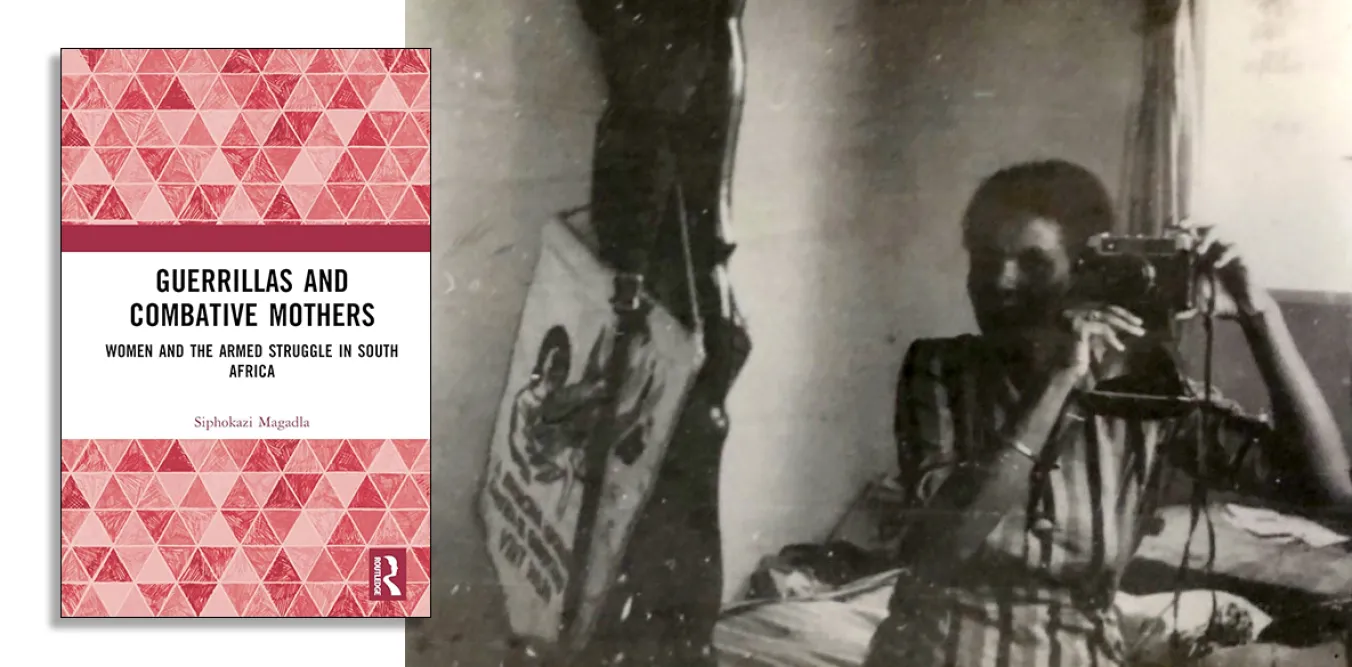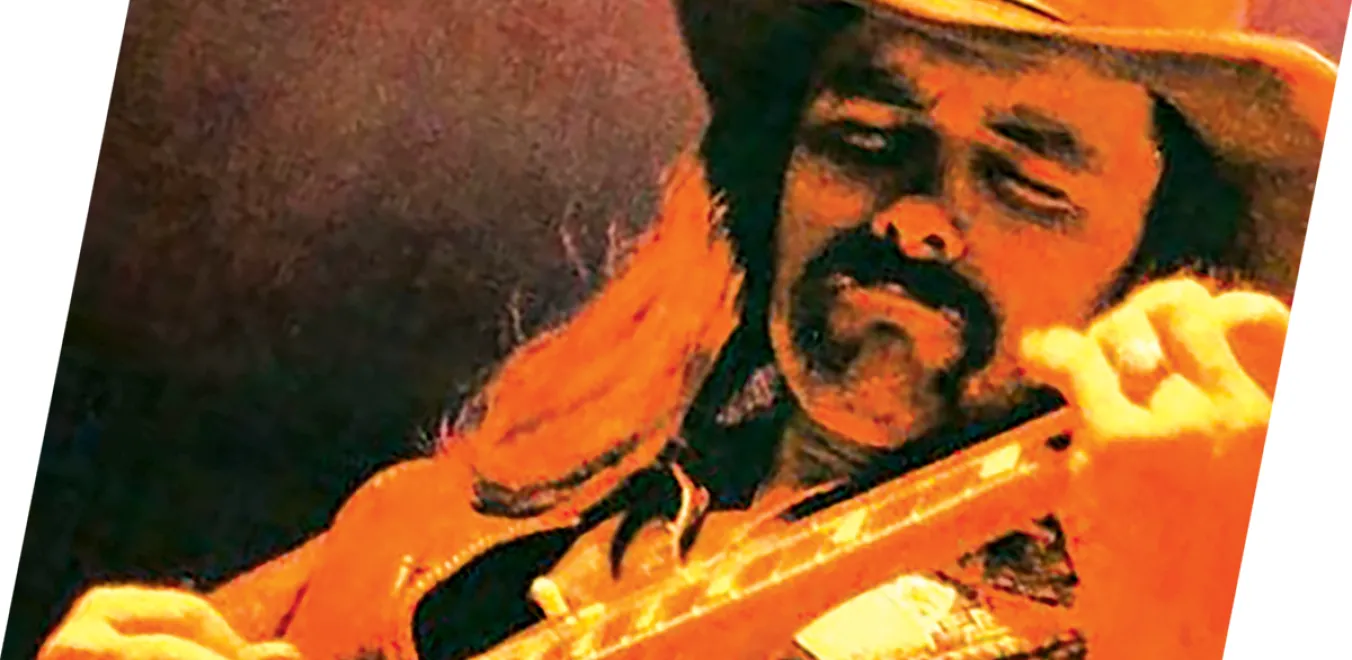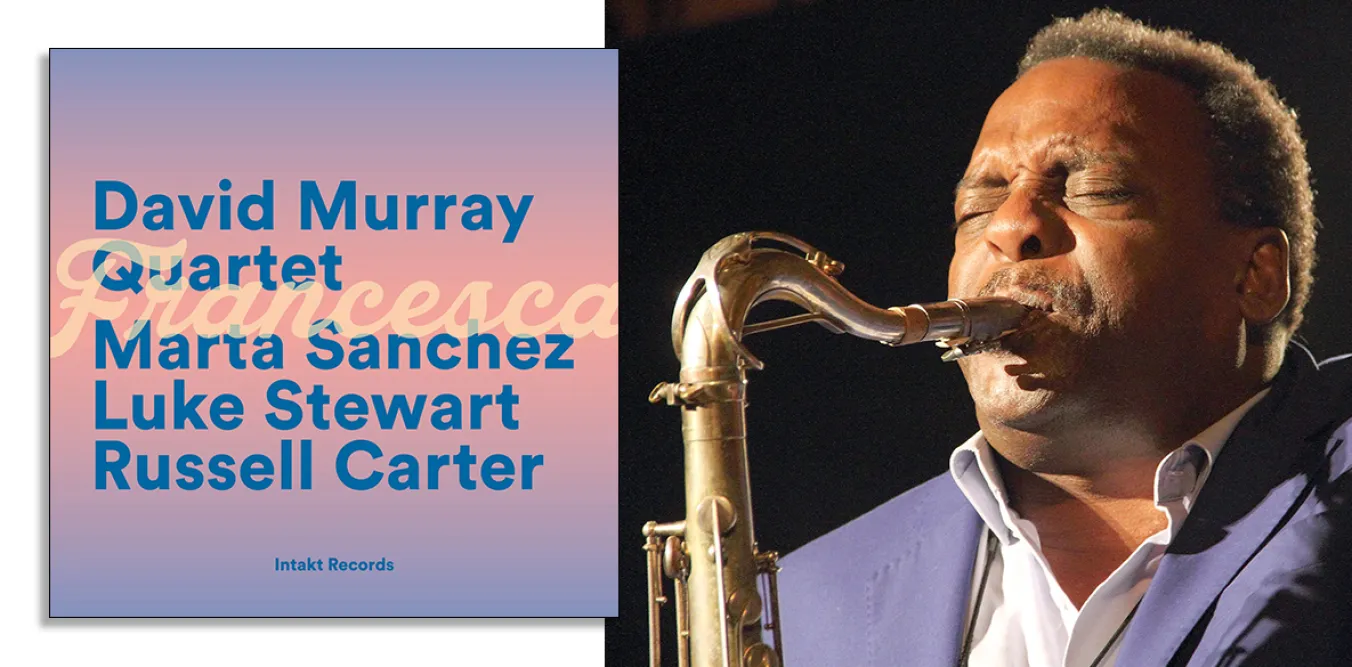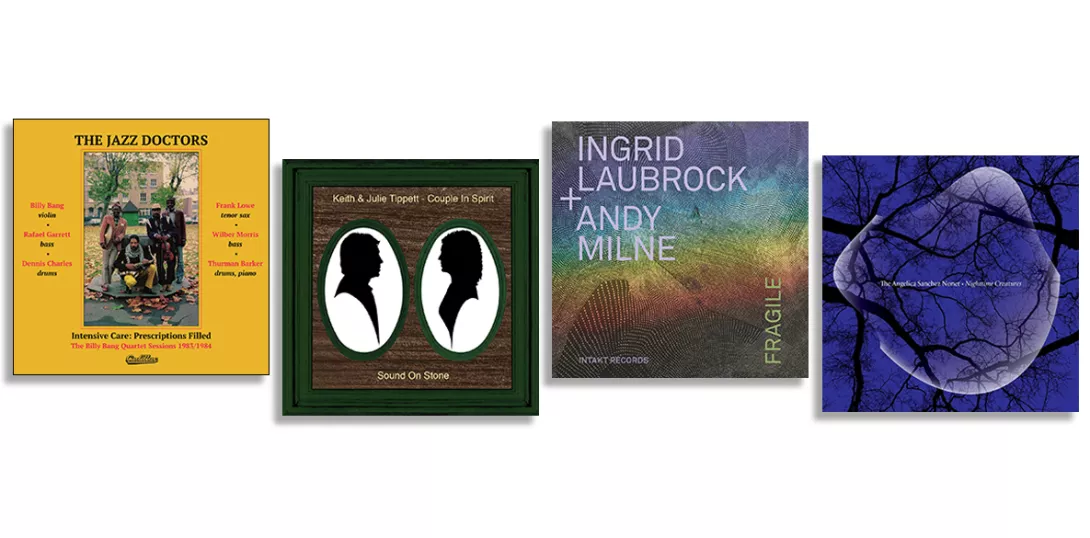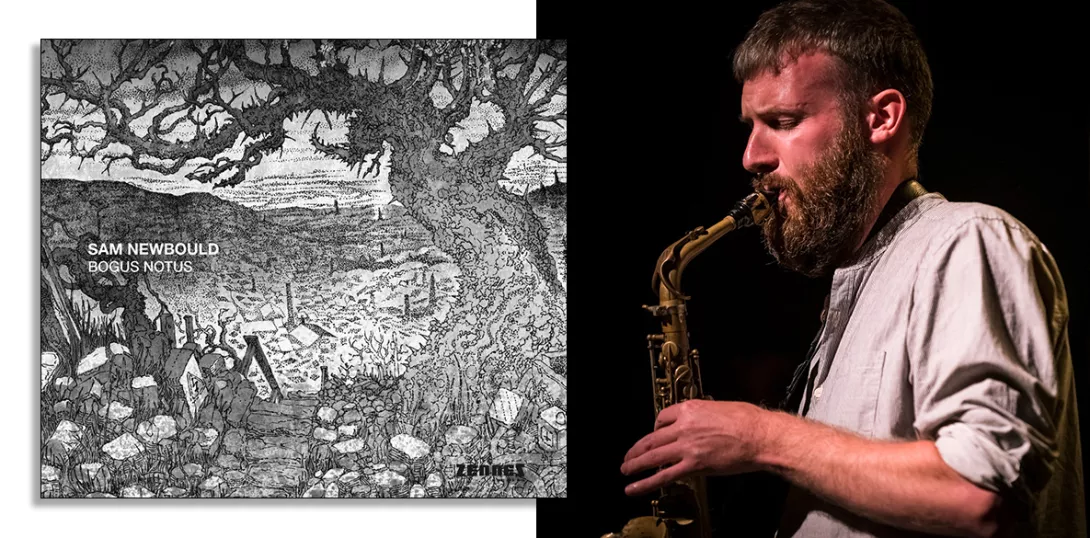
THERE are few enough jazz albums where the listener, even before hearing the music, is haunted by the power of the sleeve design, but Sam Newbould’s Bogus Notus is certainly one of them.
Alto saxophonist Newbould, born deep in the Yorkshire Dales in 1990, explains Simon Foster’s evocative artwork in this way: “It has a doom-like feeling of industrial wasteland with its dark clouds and smoking chimneys infringing on beautiful valley scenery in a hyperbolic way — peering over the edge. It was only after I left home and came back that I began to look on the place as an outsider, developing feelings of discomfort and non-belonging.”
These return-home blues radiate from his album. “My father was a lawyer,” he says, “my mother a radiographer, and we listened mostly on car journeys to The Clash, Dylan and The Beatles. My mum was a good pianist — I remember her playing Chopin. As a teenager it was Radiohead, Muse, pianists like Chopin and Rachmaninov and big band music by Ellington and Glenn Miller. My school music teacher was a good jazz pianist and introduced me to Cannonball Adderley, Miles and Coltrane.
“I started on saxophone at 13, even though I wanted to play drums. Sadly, the school band needed no drummers so I was offered sax instead. I remember listening to Kind of Blue and remembering every Jimmy Cobb drum fill and cymbal pattern from the album. I started getting paid gigs at 18-19 at Durham University where I studied philosophy, performing at least twice a week.”
What about Bogus Notus? “Its tagline is about a joy of home mixed with the discomfort of being an outsider. I wasn't unhappy there, but always knew I needed to leave the quietness of the countryside where feeling different was something to be avoided. It was as if for all its beauty, the Dales were always overshadowed by an impending sense of doom — harsh weather, threat of floods, where modernity disrupts the status quo and diverging from the social norms risks exile.”
Bogus Notus sounds out this “contradictory nature” from its first track, Left Side of the Cove. “The Cove is a sheer rock face cliff in Malham which I used to cycle up”, explains Newbould. “The cycle starts flat, then plateaus out and comes all the way back down in a really deep descent. I try to capture that in a film-scorey kind of way, the Bogus Notus contradictory beauty is mixed with discomfort straight away.”
What about the track Concrete Caterpillar? “It’s dedicated to my dad who laid two strips along the entire three-quarter-mile length of track leading to our house, to stop it being washed away in autumn/winter rains. I’d hear his relentless digging for hours on end (hence the robotic beat), and the angular saxophone lines capture the threat of it being washed away in a dark-humoured way.”
He explained the album’s title. “I added a weird note to a melodic line in what became the title track. I described it as a bogus melody note (then abbreviated it to a faux-Latin equivalent: “Bogus Notus”). I like to make up words, create an alternative language. So “Bogus Notus” became a kind of species name like those you hear for plants and animals — for the odd feelings of being detached from the place you grew up in and love.”
The mood changes for the lyricism of Song for Annie, sung by his partner Beth Aggett, to their baby niece. “The message is that the best thing we can offer her, the most personal gift, is a song written for her.”
Bogus Notus was recorded far away from the Dales, in Amsterdam, with musicians from a cosmopolis of backgrounds. The tenor saxophonist Bernard van Rossum, grew up in Spain with his British mother and Dutch father, and leads a flamenco big band. Youngwoo Lee is a South Korean who “surprises me every time he plays.” Guy Salomon is an Israeli drummer — a source of “humour, chaos and melodic beauty,” and Daniel Nagel is a delving, dancing German bassist.
It’s as if Newbould needed to wrap himself in such internationalist humanity in order to sonically return to his Yorkshire nurturing ground. However you hear it, Bogus Notus is a compelling album, where thought measures sound, and sound provokes thought.
Bogus Notus is released by Zennez Records

